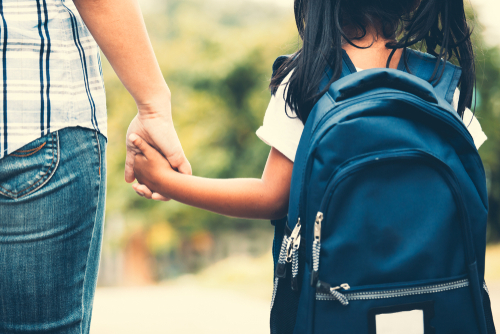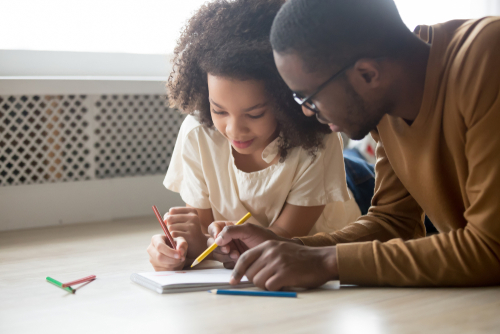
Written by Summit Health Registered Nurse, Chloe Chan
Reviewed by Summit Health therapist, Heather Sohl, Ph.D.
The COVID-19 pandemic has markedly affected all of us in one way or another, and many of us have had to make significant lifestyle changes. This “new normal” has affected many aspects of our daily lives, including how we work, learn, and interact with others, and it has taken a toll, not only our own mental health, but on the mental health of our children as well.
Acknowledging the real effects of COVID-19 on children
While it is always important to be mindful of our mental health as adults, it is especially important to step back and take note of how our children are handling these unexpected situations.
Children across all age groups are experiencing what is described as “downstream effects” of the pandemic, which includes social isolation and disruption in education. It is critically important that we do not neglect this demographic and check in with our kids regularly to see how they are making sense of the world around them.
The psychological and physiological impacts observed in children
Similar to their adult counterparts, children are exhibiting both psychological and physical symptoms related to prolonged stress. Stress originates in the brain, but it affects all body systems and contributes to the development of many diseases. While it’s still too early to determine the long-lasting effects that pandemic stress may have had on children, there are clear behavioral changes that have been observed. Some of the more notable ones include:
- Decreased motivation and less engagement/interest (i.e., logging on to class from their bedroom or attending class without their camera or from bed)
- Decreased levels of physical activity (i.e., not getting outside or moving as much)
- Changing friend groups - possibly due to new rules around socialization and based more on proximity than anything else.
- Feelings of isolation and depression
- Nervousness surrounding returning to full day school in the fall
Helping families navigate these challenges together
Navigating your child’s mental and physical well-being is not easy. Parents are a child’s direct support system. However, some find it quite difficult to explain current events or get their children to adapt to changes in their educational and social structures. And that’s where health professionals can help.
Advice for parents and caregivers: 
- Stay active as a family and utilize the remainder of summer to increase engagement and safe socialization.
- Listen closely and allow your child to freely communicate their thoughts and emotions.
- Help your child focus on meaningful activities during the day such as reading, drawing, or playing outside, all of which can be great forms of stress relief.
- Be mindful of what information your child may be picking up from friends and news outlets. Misinformation in the wrong hands can be dangerous.
- Reach out to your child’s pediatrician if any concerning behaviors arise.
Preparing for back to school
As school and other activities return to an in-person format, additional stressors may arise for children and their parents. Back-to-school anxiety is real and quite normal, especially after a prolonged absence, and just as it took time to acclimate to a virtual environment, there will be an adjustment period for getting back to a normal in-person routine.
Children are resilient, but it’s still important to check in on their emotional state from time to time. As the school year approaches, parents should look for signs of anxiety in their children such as loss of appetite, reduced energy, increased irritability, and trouble sleeping. If your child is displaying any of those symptoms, keep an open line of communication. You want to make sure they know you are supportive and understand their concerns. If symptoms last beyond the first few weeks of school or are severely limiting their school attendance or participation in activities, reach out to their pediatrician to discuss.
If contracting or spreading COVID-19 is what’s worrying them, remind them of the many things they can control like handwashing, mask wearing, and social distancing. Reading and physical activity are also great distractions that can help children clear their minds.
More about Summit Health
Pediatrics and Adolescent Medicine at Summit Health provides pediatric primary care for newborns to age 22. Our pediatric team offers all the childhood services you and your child need, including check-ups, sick visits, and vaccinations. We also provide social, developmental, and behavioral assessments.
References:
Kamidani, S., Rostad, C. A., & Anderson, E. J. (2021). COVID-19 vaccine development: a pediatric perspective. Current opinion in pediatrics, 33(1), 144-151.
Ye, J. (2020). Pediatric mental and behavioral health in the period of quarantine and social distancing with COVID-19. JMIR pediatrics and parenting, 3(2), e19867.
